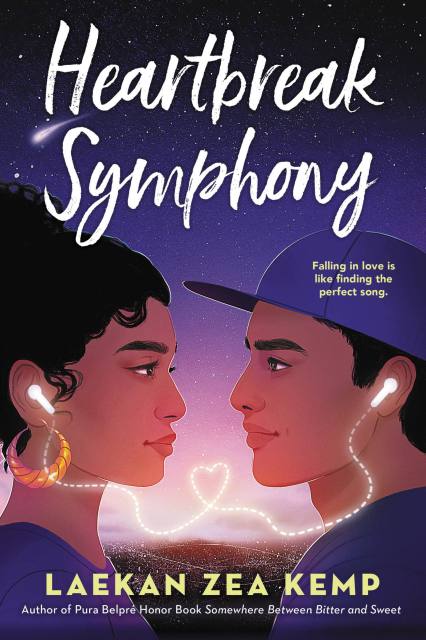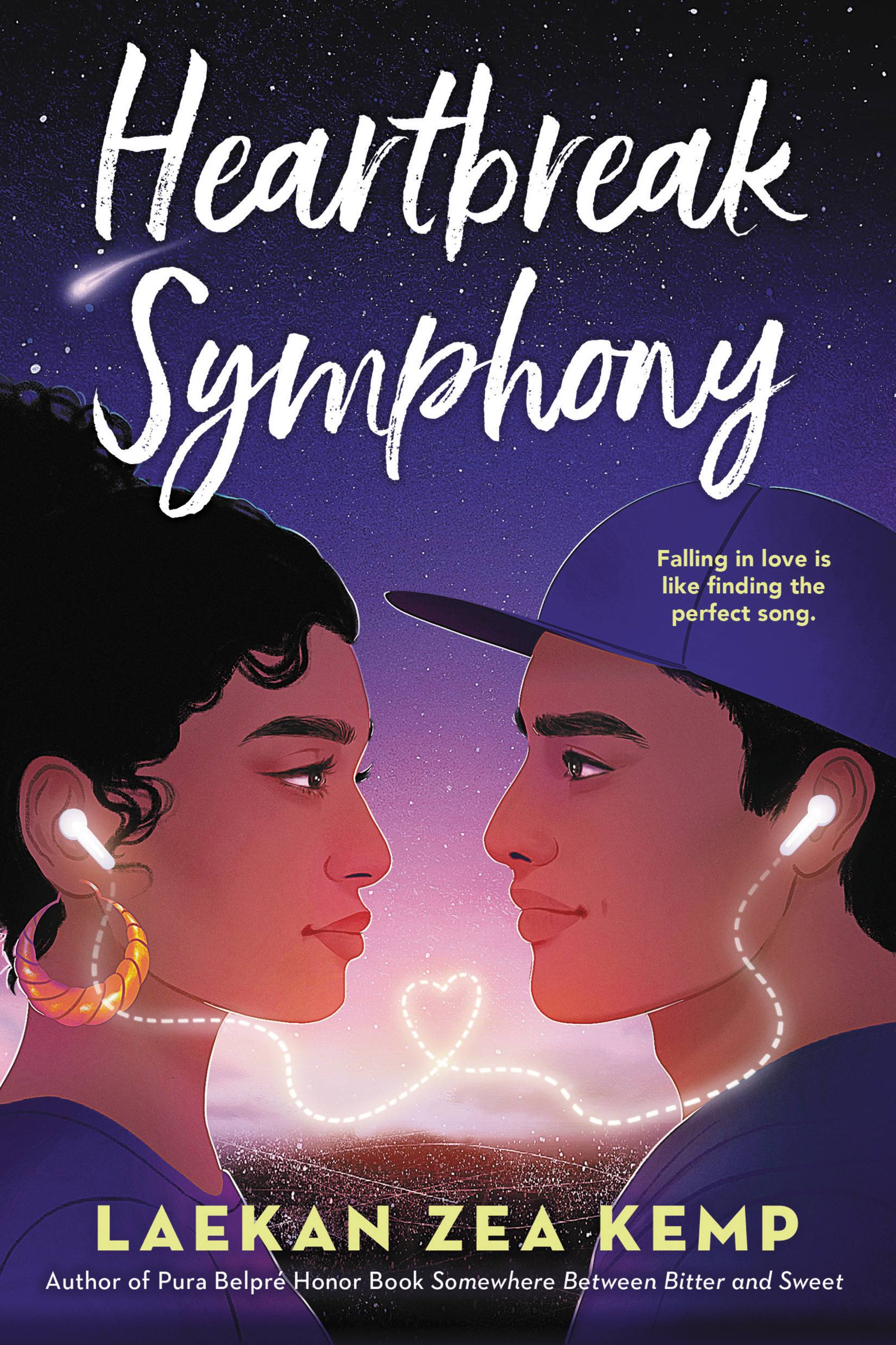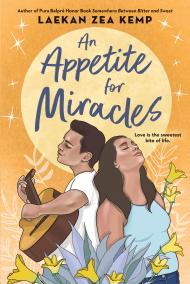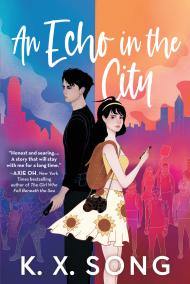By clicking “Accept,” you agree to the use of cookies and similar technologies on your device as set forth in our Cookie Policy and our Privacy Policy. Please note that certain cookies are essential for this website to function properly and do not require user consent to be deployed.
Heartbreak Symphony
Contributors
Formats and Prices
- On Sale
- Oct 3, 2023
- Page Count
- 384 pages
- Publisher
- Little, Brown Books for Young Readers
- ISBN-13
- 9780316460392
Price
$11.99Price
$15.99 CADFormat
Format:
- Trade Paperback $11.99 $15.99 CAD
- ebook $9.99 $12.99 CAD
- Audiobook Download (Unabridged) $27.99
This item is a preorder. Your payment method will be charged immediately, and the product is expected to ship on or around October 3, 2023. This date is subject to change due to shipping delays beyond our control.
Buy from Other Retailers:
Clap When You Land meets On the Come Up in this heart-gripping story about navigating first love and overcoming grief through the power of music.
Aarón Medrano has been haunted by the onstage persona of his favorite DJ ever since his mother passed away. He seems to know all of Aarón’s deepest fears, like how his brain doesn’t work the way it should and that’s why his brother and father seem to be pushing him away. He thinks his ticket out is a scholarship to the prestigious Acadia School of Music. That is, if he can avoid blowing his audition.
Mia Villanueva has a haunting of her own and it’s the only family heirloom her parents left her: doubt. It’s the reason she can’t overcome her stage fright or believe that her music is worth making. Even though her trumpet teacher tells her she has a gift, she’s not sure if she’ll ever figure out how to use it or if she’s even deserving of it in the first place.
When Aarón and Mia cross paths, Aarón sees a chance to get close to the girl he’s had a crush on for years and to finally feel connected to someone since losing his mother. Mia sees a chance to hold herself accountable by making them both face their fears, and hopefully make their dreams come true. But soon they’ll realize there’s something much scarier than getting up on stage—falling in love with a broken heart.
-
A 2022 Booklist Editors’ Choice
A 2023 TAYSHAS Selection
A Bank Street Best Book of the Year -
"A gripping, authentic, and vivid portrayal of grief and the many ways it can manifest itself."Jonny Garza Villa, author of Fifteen Hundred Miles from the Sun
-
"A heartwarming, soul-searing coming-of-age journey."Raquel Vasquez Gilliland, author of How Moon Fuentez Fell in Love with the Universe
-
* "This story will be resounding in readers’ hearts long after they’ve turned the last page. With the lyricism of Benjamin Alire Sáenz’s Aristotle and Dante Discover the Secrets of the Universe and Raquel Vasquez Gilliland’s works, this novel is recommended for all collections."SLJ, starred review
-
* “Kemp’s latest novel is a multilayered symphony in itself, keeping the reader’s emotions heightened from the first sentence until the finale, during which readers will be left breathless in wonder. Kemp effortlessly creates beautifully flawed characters who are impossible to forget.”Booklist, starred review
-
"A powerfully emotional story about two teens pursuing their dreams in a difficult world."BCCB
-
"A lyrical standalone about pursuing one’s dreams despite impossible odds."Publishers Weekly
-
"A story of surviving grief with the help of community."Kirkus Reviews
-
Praise for Somewhere Between Bitter and Sweet:Kirkus Reviews, starred review
*"Fans of Elizabeth Acevedo’s With the Fire on High will cherish Xander and Pen’s love story and Pen’s passion for food. This stellar debut offers a cathartic take on a relationship between a father and daughter. Authentic flavor inside and out." -
*"Kemp’s novel serves up finely rendered, stirring character arcs...as well as an intimate portrait of two teens grappling with mental health, complicated family relationships, and newfound love."Publishers Weekly, starred review
-
"Wonderfully realized characters, a vibrant setting, and so much more. I loved this."Melina Marchetta, award-winning author of Jellicoe Road
-
"Pen and Xander will steal your heart. One to savor."Laura Taylor Namey, New York Times bestselling author of A Cuban Girl's Guide to Tea and Tomorrow
-
"A bold new voice to watch in children's fiction."Eric Smith, author of Don't Read the Comments
-
"An affecting, timely debut....Add it to your 2021 TBR list immediately."Liz Lawson, author of The Lucky Ones
-
"Like the delicious food and decadent desserts described within its pages, Kemp's debut explores the often bitter and sweet complexity of family, new love, and what it means to find home. "Mia García, author of The Resolutions
-
"Pen and Xander's unforgettable love story refuses to sugarcoat difficult topics, but instead deftly explores them with a thoughtful hand. A cathartic read and new favorite author."Nina Moreno, author of Don't Date Rosa Santos
-
"Lush imagery celebrates Mexican culture and depicts how food can bring people together. . . . not to be missed."School Library Journal
-
"Students will enjoy the food descriptions and community culture that lend the story a sense of authenticity and believability."School Library Connection
-
“Kemp’s precise writing flows from Pen’s perspective to Xander’s effortlessly, even while revealing their individual lives….Recommended for readers who enjoy strong stories about found families, expectations, and food.”Booklist
Newsletter Signup
By clicking ‘Sign Up,’ I acknowledge that I have read and agree to Hachette Book Group’s Privacy Policy and Terms of Use







